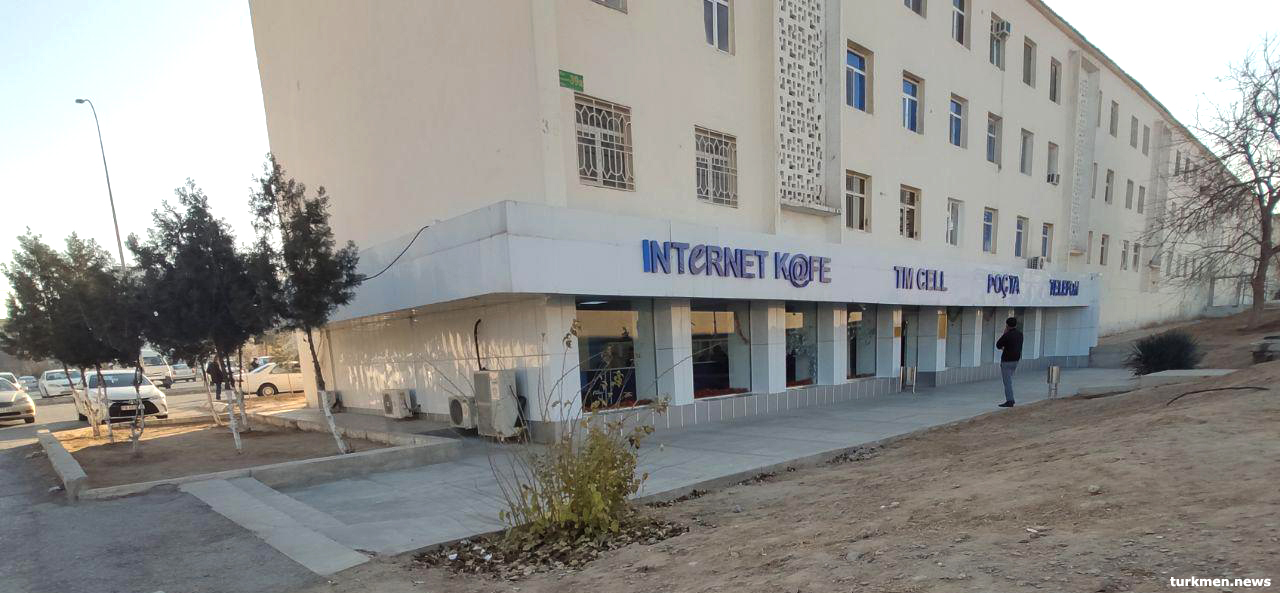
Internet access was practically blocked across Turkmenistan as of August 11.Only a handful of Cloudflare’s 500 million IP addresses in the country were left.Of the four billion IP addresses in the world, over three billion have been blocked in Turkmenistan.
On July 26, turkmen.news used its Telegram channel to call on readers inside the country to share information about who exactly is behind the blocks.We are now naming the major bad actors on Turkmenistan’s Internet, who successfully push the idea of national security with the country’s leadership, while they themselves have essentially taken over access to the World Wide Web and are making money hand over fist on it.Internet cafe in AshgabatIt’s the Cyber Security Department in the Ministry of National Security that blocks and at the same time “trades” in free access to the Internet.
Several years ago the unit was removed from the Eighth Department of the National Security Ministry, responsible for communications and encryption.For 10 years the head of the Eighth Department was Maksat Geldiyev, and when cyber security was hived off Maksat Geldiyev was transferred to be its head.
Geldiyev’s cell number +99365702777 is officially recorded in cell phone operator Altyn Asyr’s database for the National Security Ministry.About a year ago Geldiyev was sacked, supposedly for failing to find the source of the leak of a notorious video, which shows a Turkmen woman beating up another woman assumed to be her husband’s lover.
Turkmen.news was unable to verify this, but straight after his dismissal from cyber security Geldiyev was sent back to the Eighth Department of the National Security Ministry as deputy head.
He is still working there, but has not lost his influence over the Cyber Security Department.A relative of Geldiyev’s Allanazar Kulnazarov is now in charge of the Cyber Security Department.
Another Internet bad actor from the department is Didar Seyidov.In 2009 his brother Shohrat Seyidov was a deputy of the Turkmenistan Mejlis and a member of the committee for the economy and social policy.All these people, and they are far from all the offenders blocking the Turkmen Internet, have accumulated vast wealth from bribes for including an IP address on the whitelists.
This service costs 1,500 to 2,000 dollars a month.Once they have paid the bribe, Turkmen citizens gain full free access to high-speed Internet.The sum is astronomical for the country, but enough takers can be found.
For example, quasi-independent Turkmen publications, such as Turkmenportal and Arzuw News have free access to the Internet.Some Ashgabat hotels and restaurants also have a separate line with free Internet.
They all pay regularly for the resource.As a result, Maksat Geldiyev rides about town in a new Toyota Highlander SUV worth tens of thousands of dollars and has several houses and apartments.
His colleagues don’t struggle to make ends meet either.But in order to maintain demand for the whitelists free information has to be kept in artificially short supply.
People have to understand that they cannot have an adequate connection just by paying the official tariff of Turkmentelecom or the Ashgabat City Telephone Network.There is also competition: providers of VPNs that are several times cheaper than the whitelists.
Until recently the special services pursued only those selling and installing VPNs.Most of the Tor Project’s bridges were recently blocked.Now in at least one region Mary those using ways of getting round the blocks are being fined too.
A turkmen.news source in the region reported that the fine for a VPN is 1,500 manats ($80 at the market exchange rate).This is around an average monthly salary.
If a minor is using a VPN, the parents are fined.In the near future turkmen.news will say more about these people and others blocking the Turkmen Internet, the software that they use, the businesses they’re involved in, and so on.
The Cyber Security Service under the purview of the Ministry of Communications (Turkmenaragatnashyk) simply carries out the illegal instructions to block the Internet.On the pretext of protecting national security employees of the National Security Ministry’s Eighth Department and the Cyber Security Department have in effect taken over the Internet in the country, giving free access to the World Wide Web only to those clients able to pay for it.
They have made the Internet in Turkmenistan the privilege of the rich and have enriched themselves in the process too.
